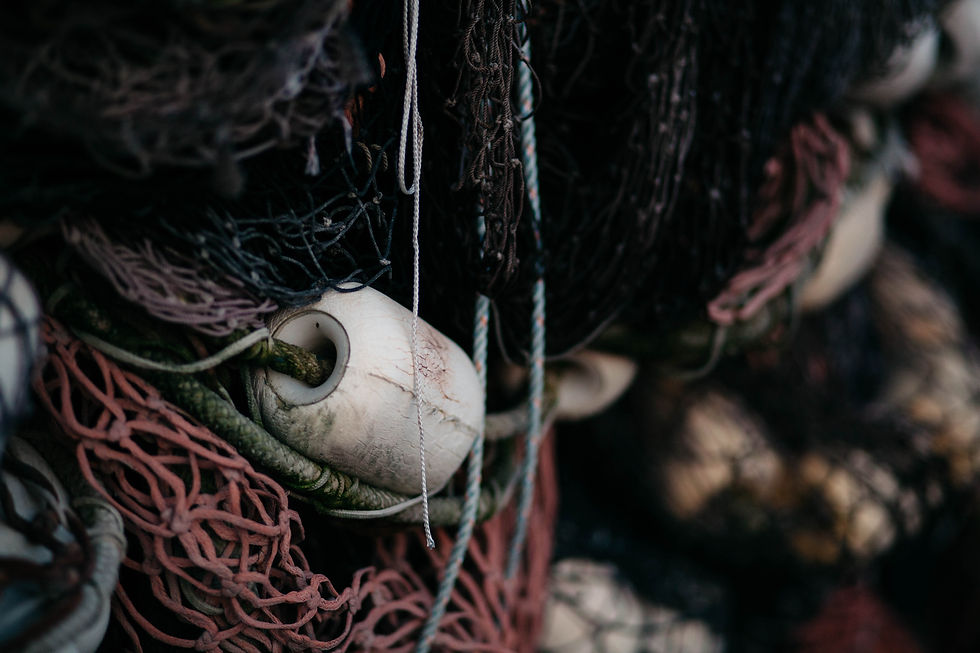Who makes a good shark scientist?
- Sphyrnas

- Aug 19, 2020
- 3 min read
Updated: Oct 22, 2021
Scientists are an interesting group of individuals. Usually we picture awkward people in lab coats that struggle to connect with other people on a personal level (think The Big Bang Theory). Is it really as cookie cutter and predictable as it seems? Do scientists really all look the same?
The answer of course, is no. Obviously.
What makes a good scientist, regardless of the discipline, is the ability to adapt and problem solve using what you have at your disposal. An academic MacGyver, if you will. We might all be “trained” in similar ways but at the end of the day we spend most of our time answering questions about stuff in the universe that we’ve been wondering about since we were kids.
Sure the questions may change over time as we learn, but the curiosity never goes away. It lingers and takes shape in the form of research questions, hypotheses, trial and error and most of the time, failure.

So what makes a good shark scientist? Or any sort of animal scientist? Anyone who can apply problem solving skills to learn more about sharks in any dimension, makes a good shark scientist. Sharks are incredible creatures, yet there is still so much that is unknown about their migration behaviors, reproductive behaviors and a plethora of other enigmas waiting to be revealed. Every shark scientist is fascinated by this group of organisms. Sometimes they’re referred to as the aliens of the ocean, other times they’re considered man eaters. But one thing all researchers can agree on, is that they never get tired of learning new things about them.
Different disciplines that count as shark science can include, but are not limited to: Chemistry, Biology, Fisheries, Anthropology, Sociology, Economics, Engineering, Education, Public Relations, just to name a few. How do all of these disciplines work together to help protect and conserve these organisms? That’s where the creative problem solving comes in. People who specialize in social sciences know how people live, and how their relationship with nature affects the wellbeing of their surrounding environment. Effective communication and distribution of knowledge learned from all the research scientists do is something not all scientists have mastered. With the help of social scientists, there is a symbiotic relationship between the disciplines that allows for better communication and communal learning when new and interesting questions are answered through different studies.
Some researchers learn how to use social media effectively so that their online presence allows for an engaging, interactive platform that involves the participation of people who may not be scientists. This is the adaptation and problem solving thing I was talking about earlier. We know that not all people think, look, or act the same. So why do we still picture the same kinds of people in our heads when we think about scientists? Even if you decide sharks aren’t something you want to research, there is no such thing as “too many scientists” in this world. So I guess the whole point of this is for me, a fisheries scientist, to express to you, my reader, the importance of knowing that we can’t put limits on our curiosities. We must welcome people to the field of shark science with open arms, especially people from under-represented groups that already struggle to breakthrough in the field. We simply cannot afford to stifle out curious minds and problem solvers.
Who makes a good shark scientist? Anyone, including you.
MISS Contributed Post: Aug. 2020
Who makes a good shark scientist?
Written by Triana Arguedas Álvarez
Triana Álvarez works in data deficient fisheries in the Mexican Atlantic,
where she is estimating approximate bull shark catch over the last 50 years.
She also analyzes how changes in political, social and economic dynamics affect
the overall fishery catch volumes.
Follow Triana for more:
@figtri or on Twitter @elasmotri
Triana is proud to be a #WOSea!
Check out MISS- Minorities in Shark Sciences
for more information or to become a member





Comments